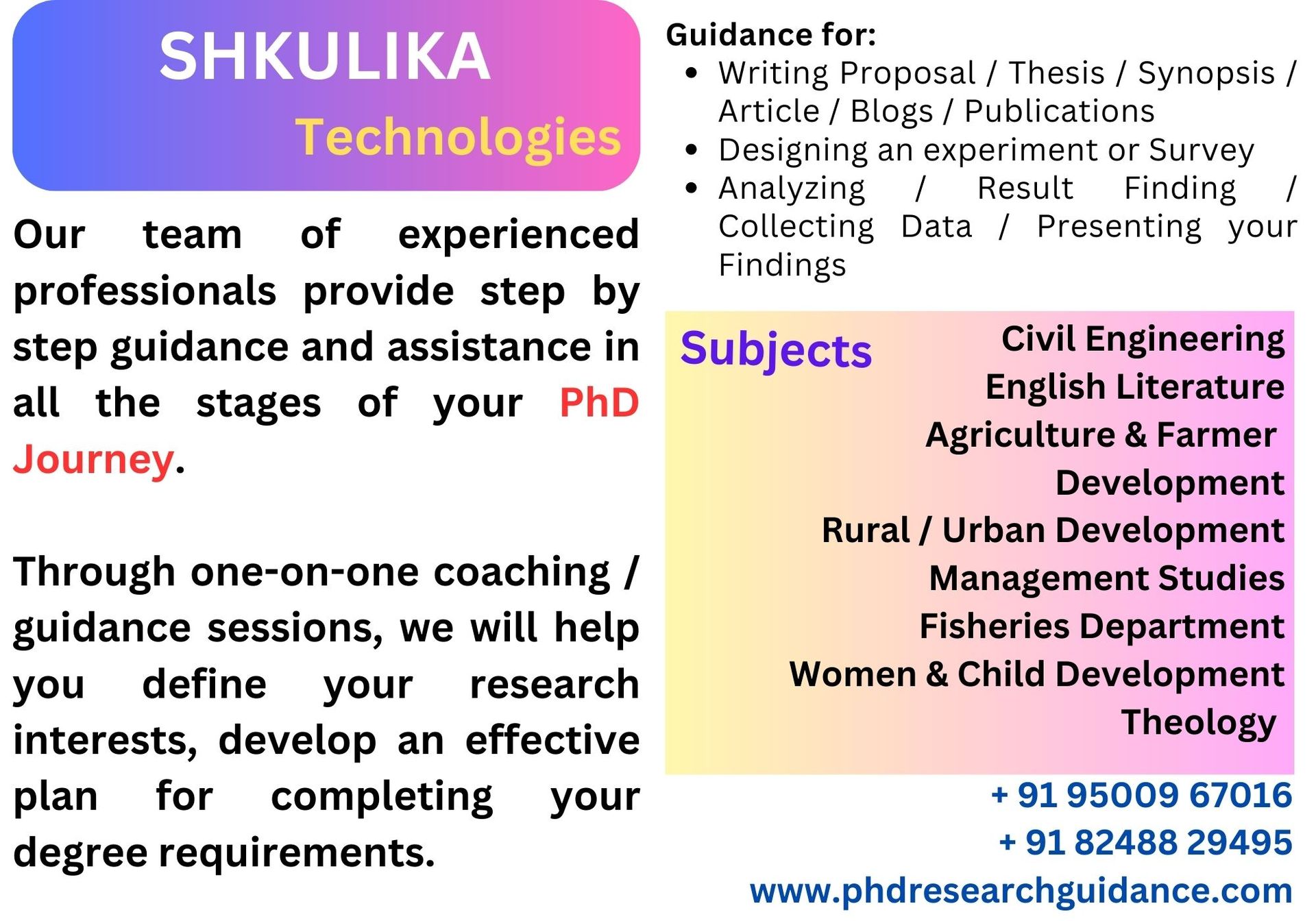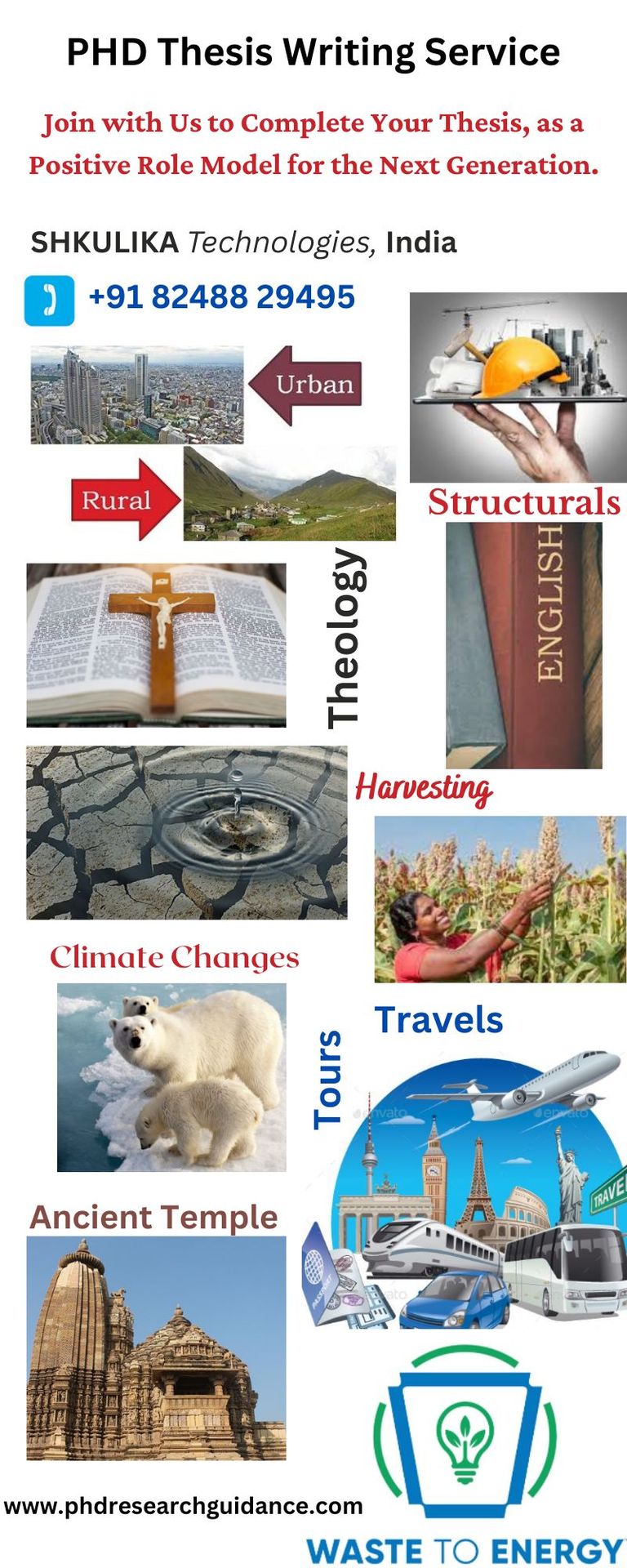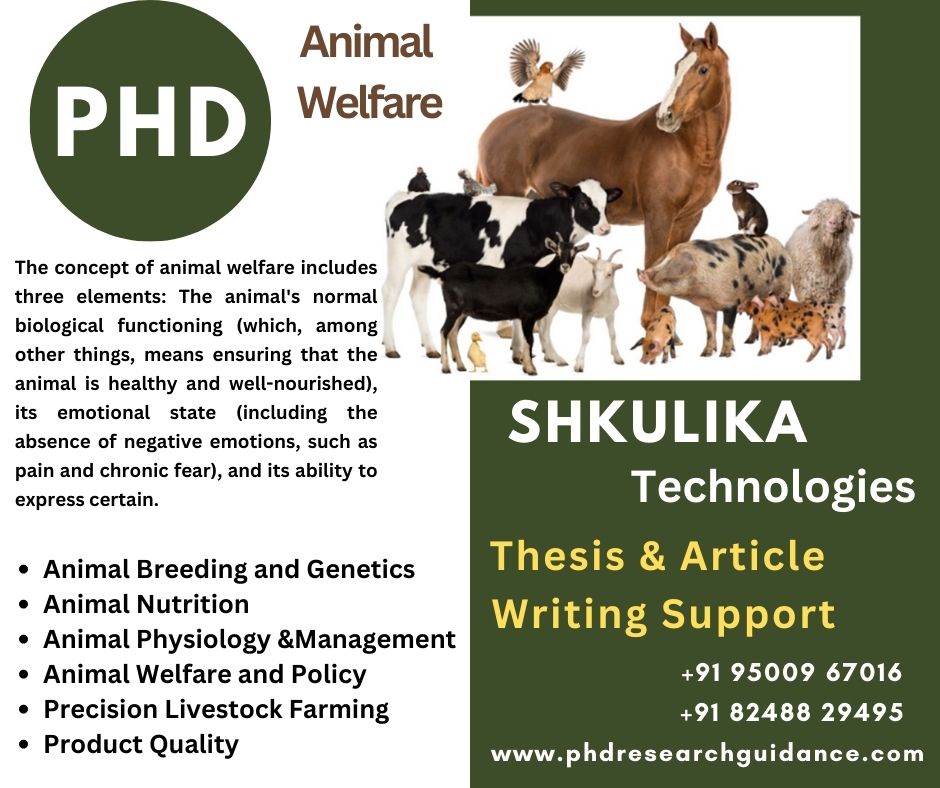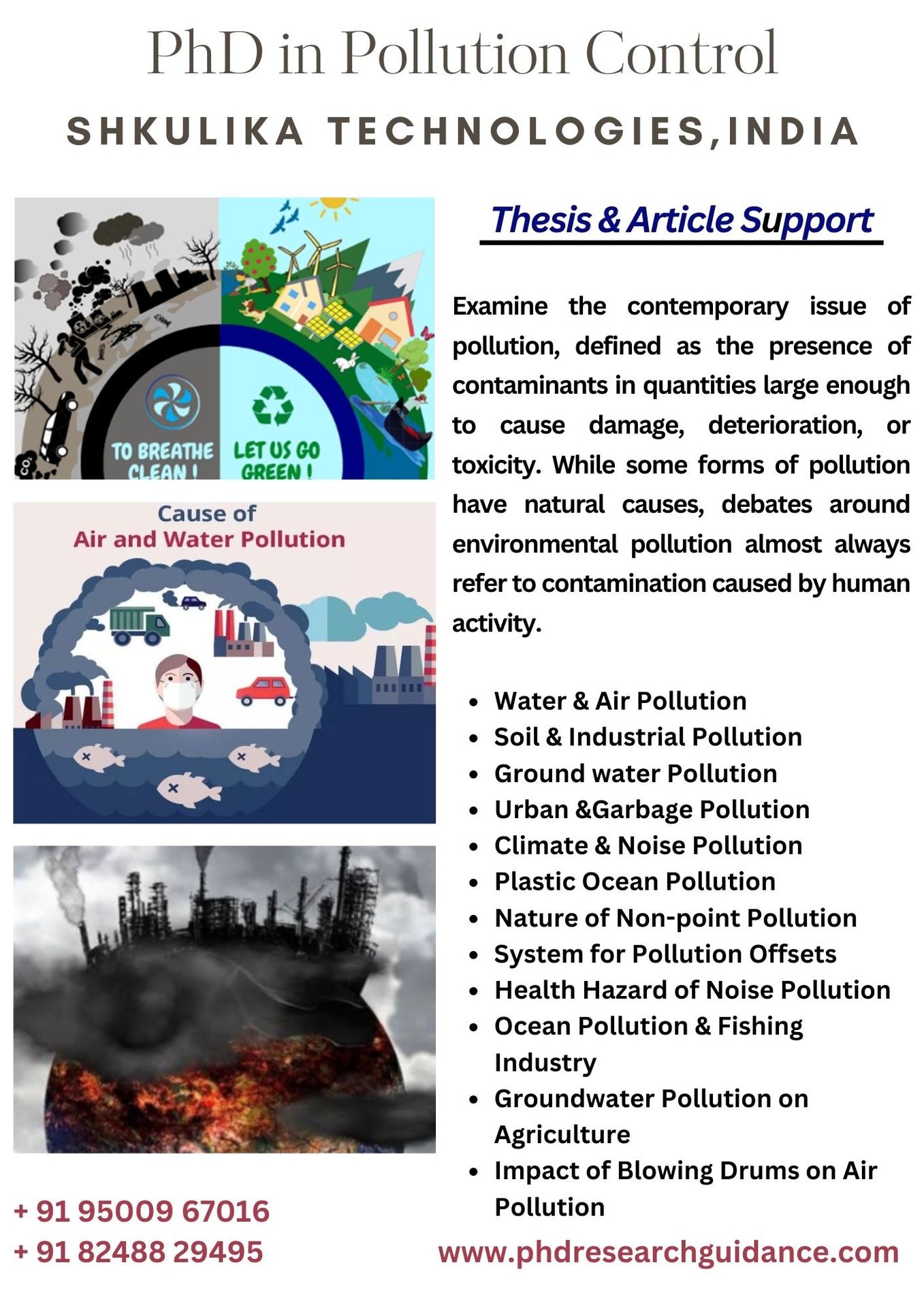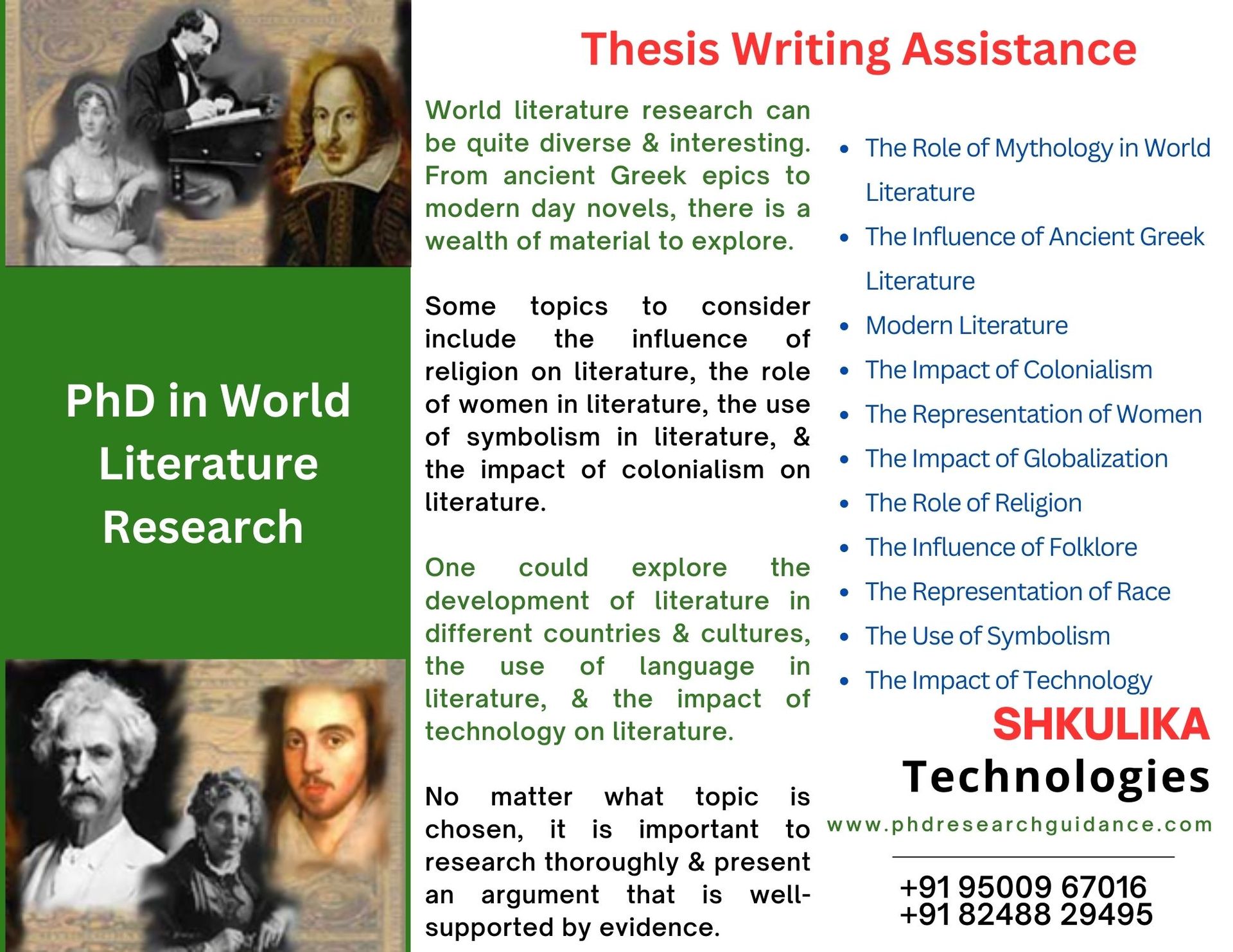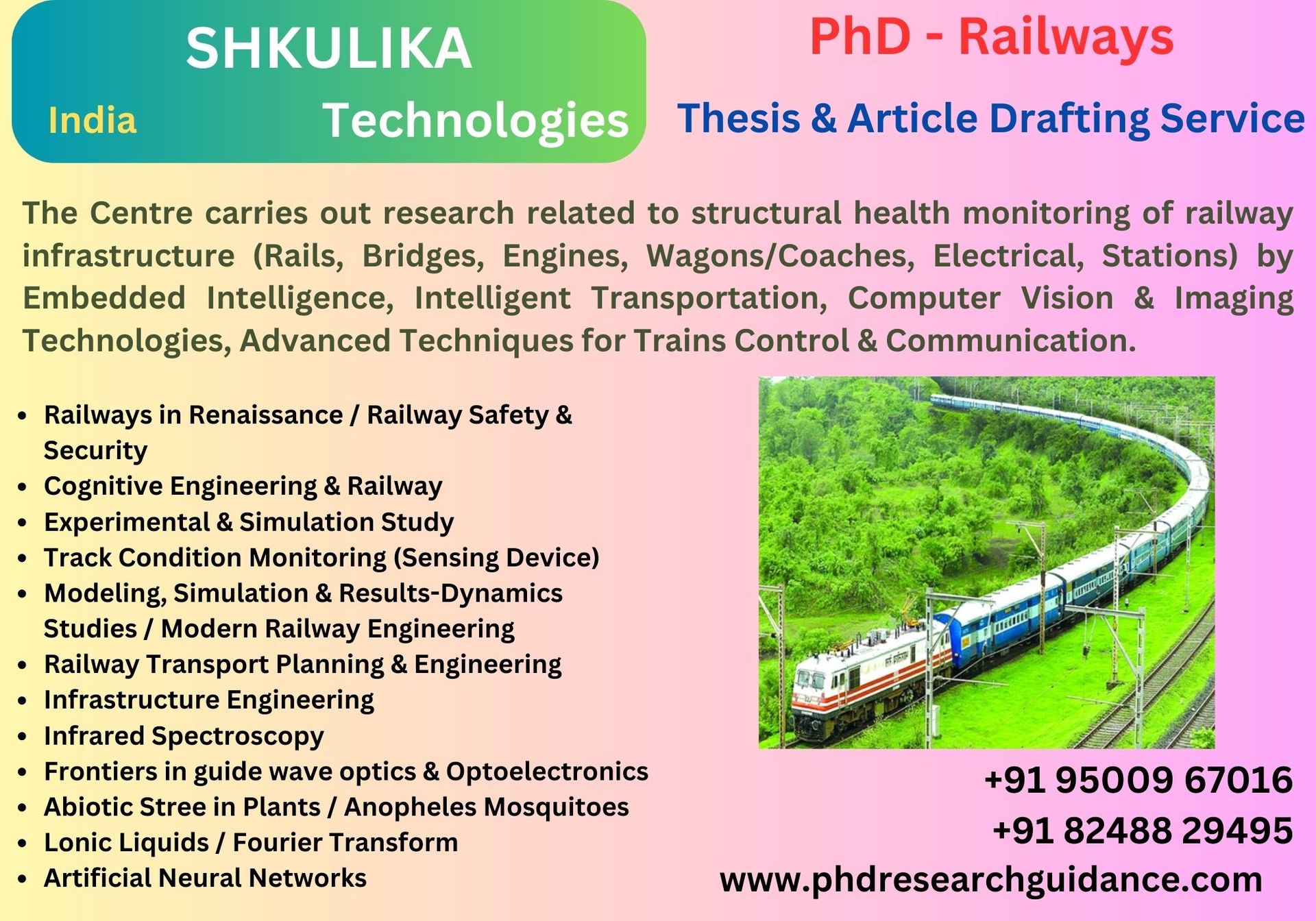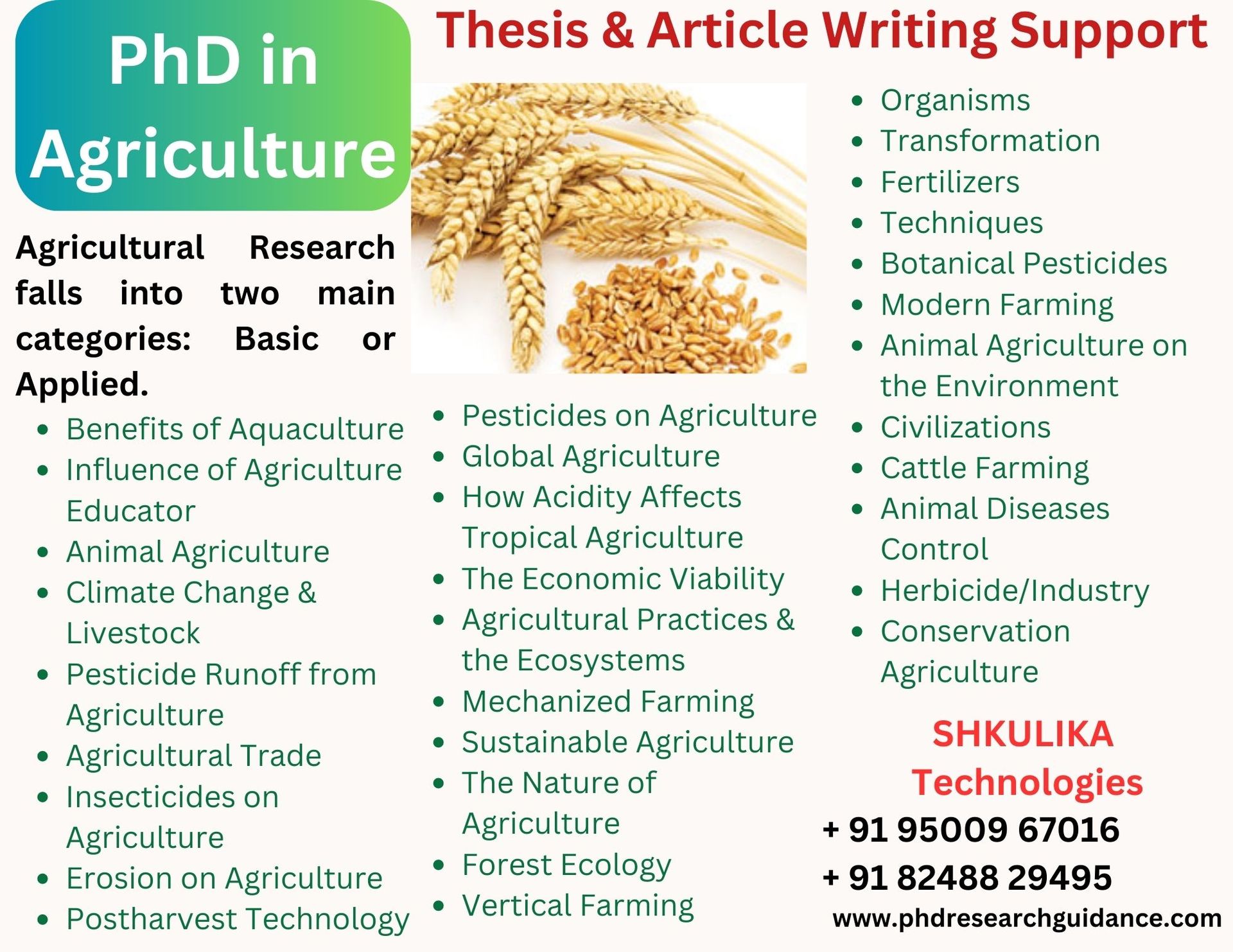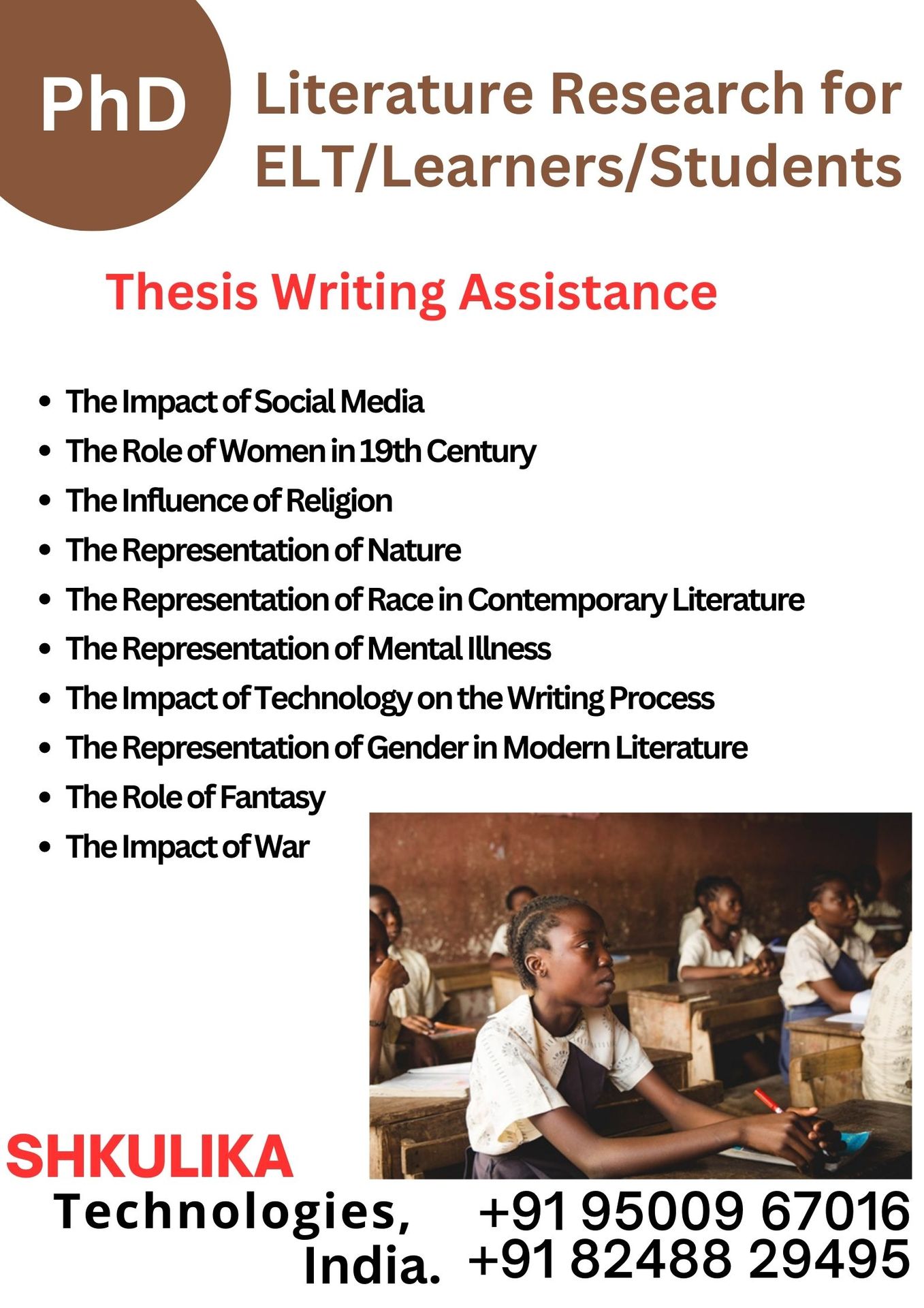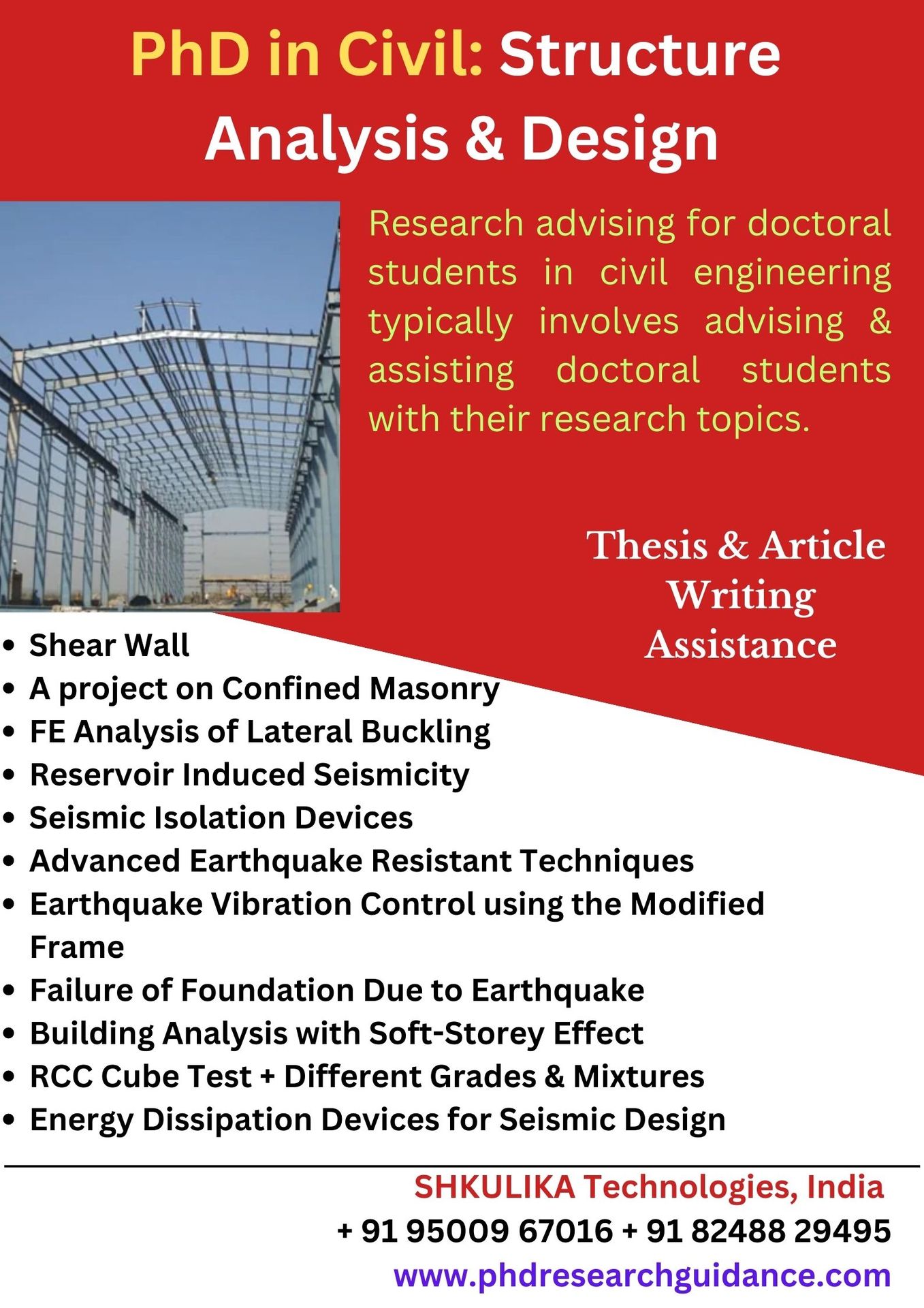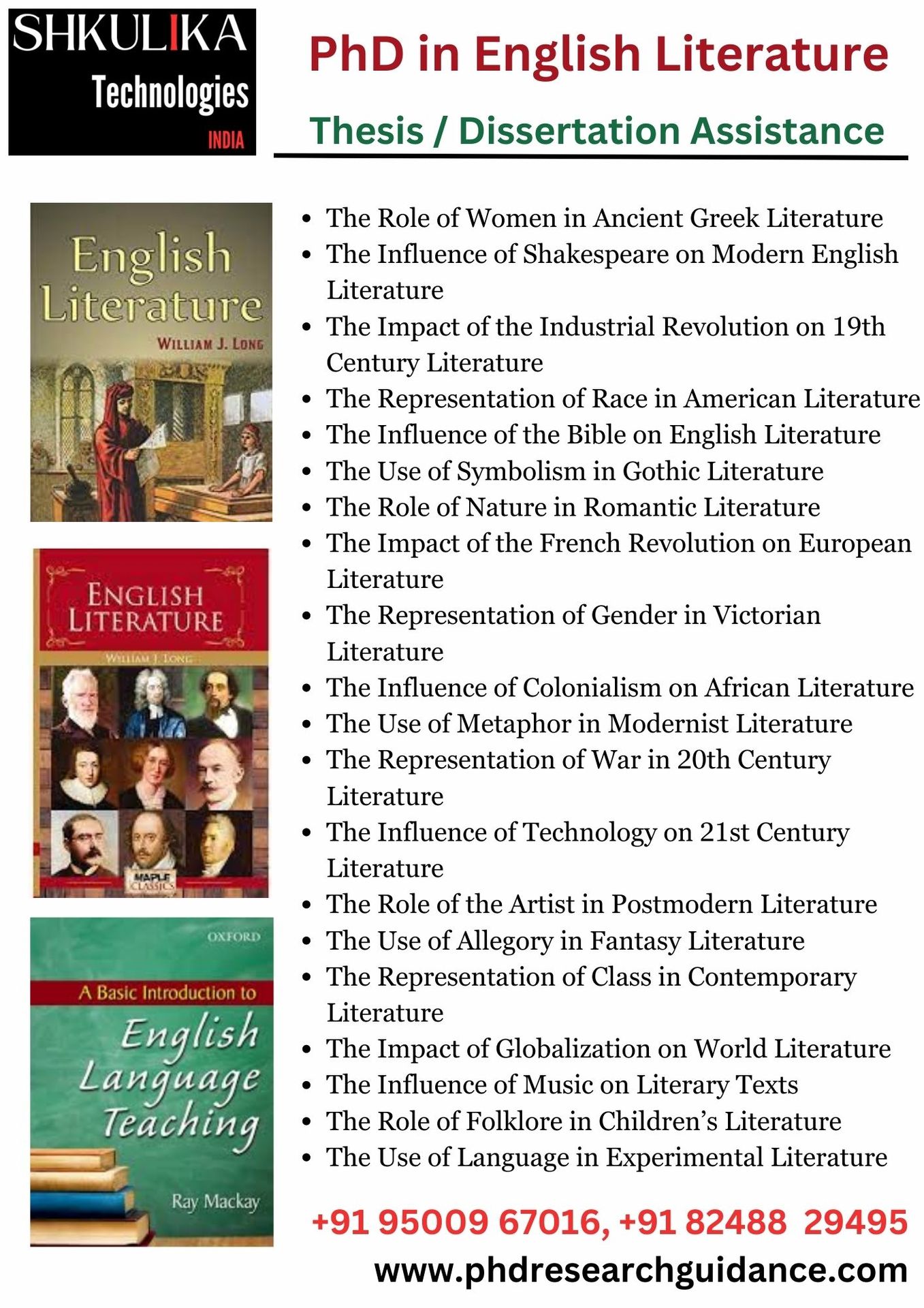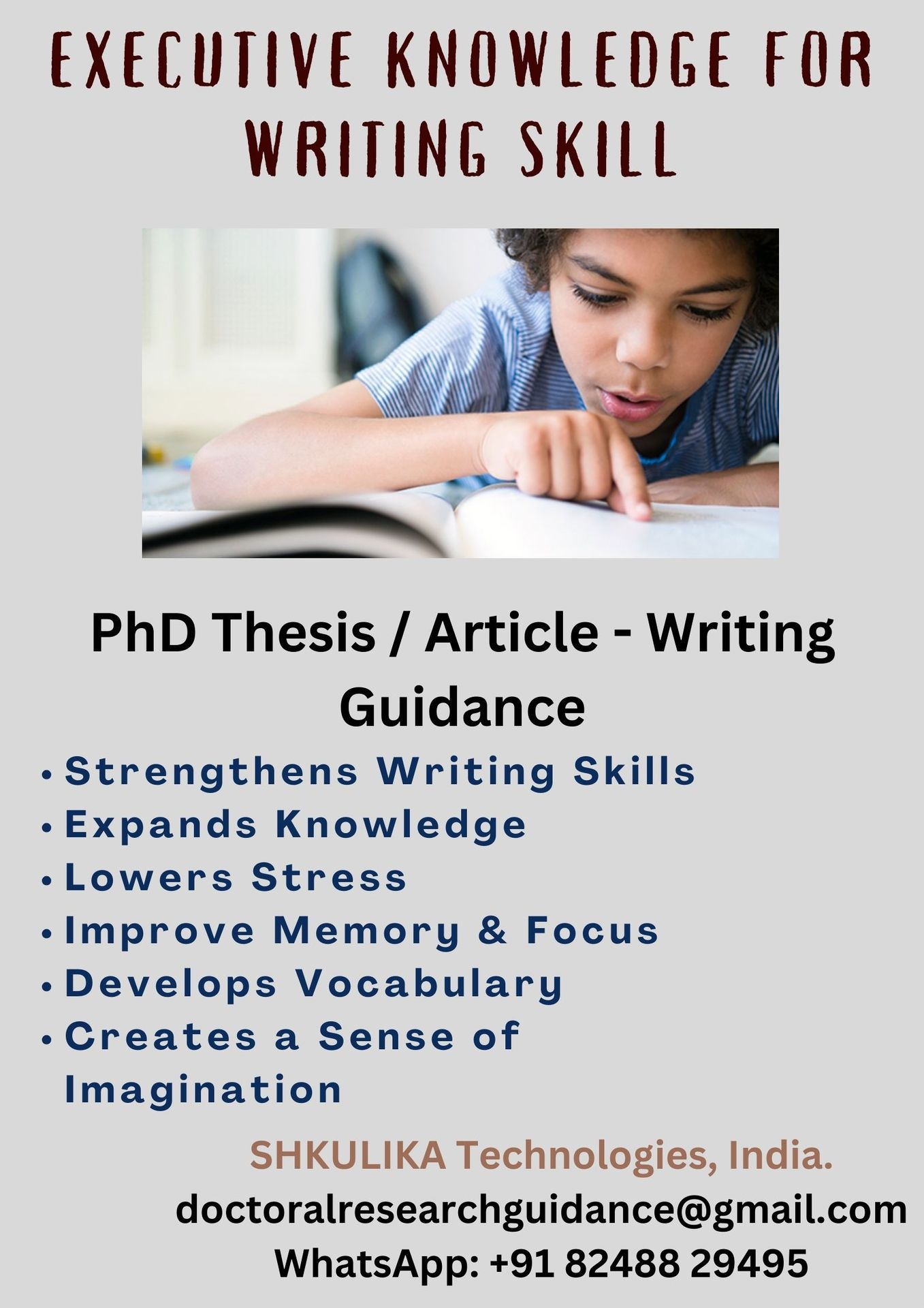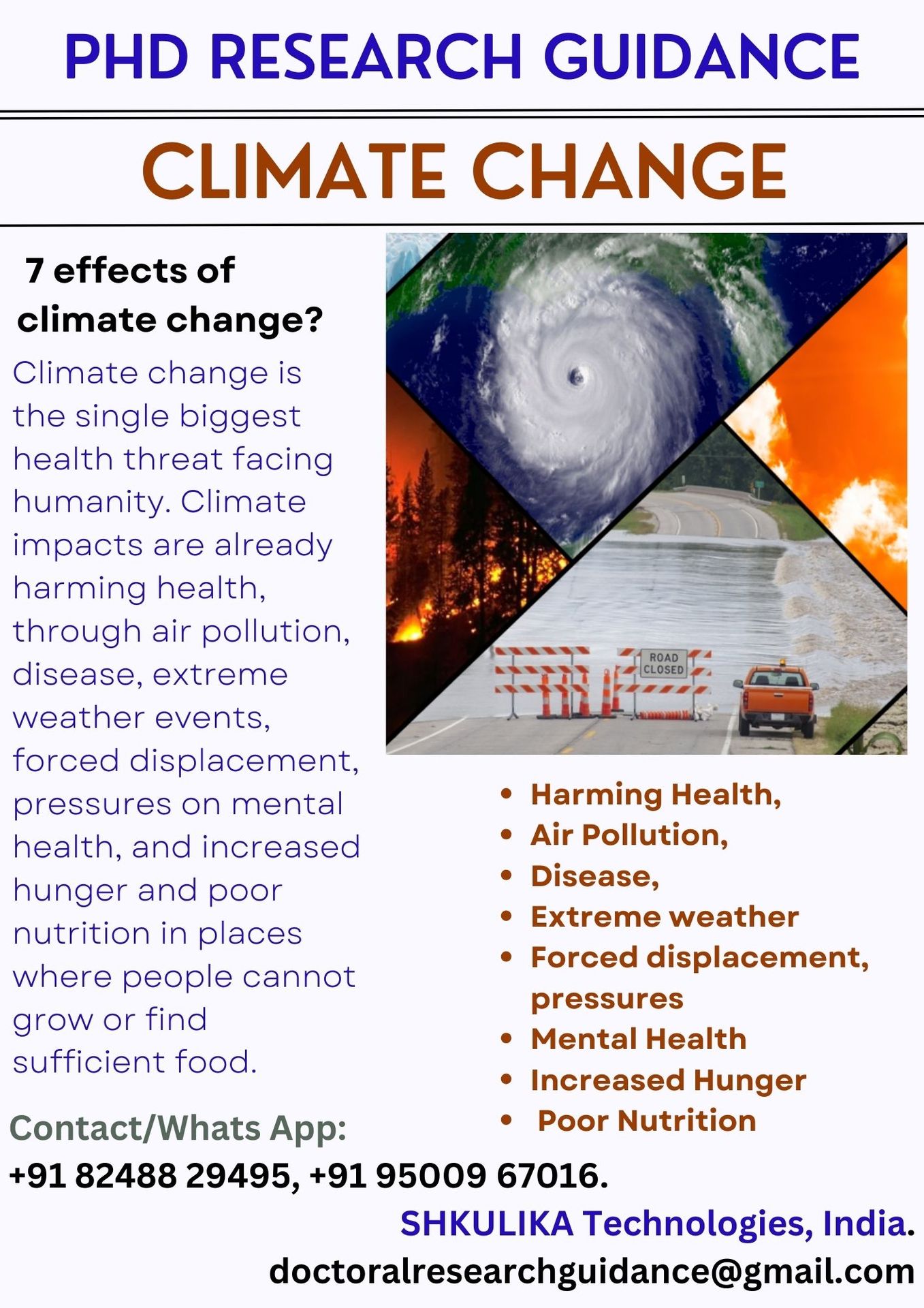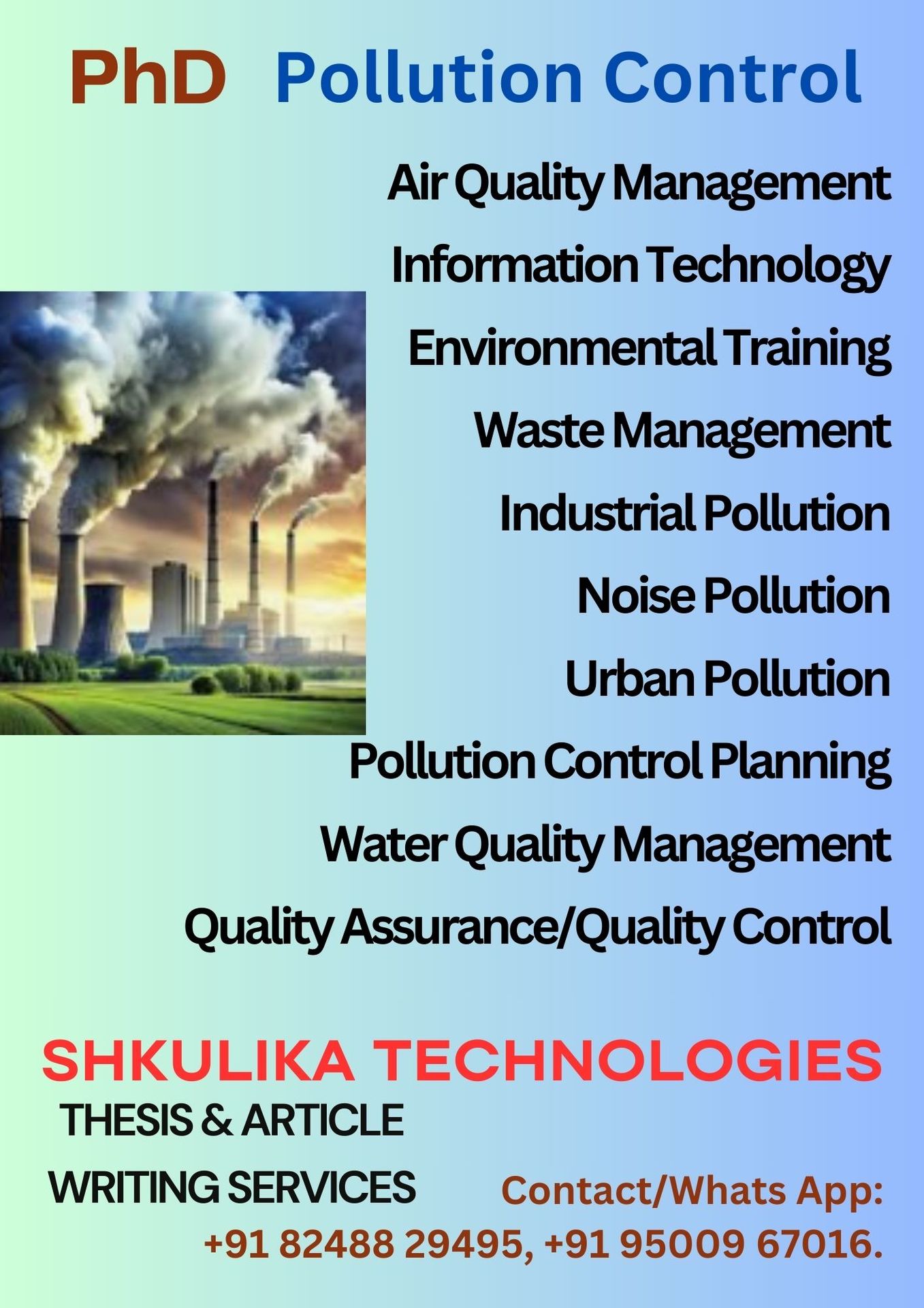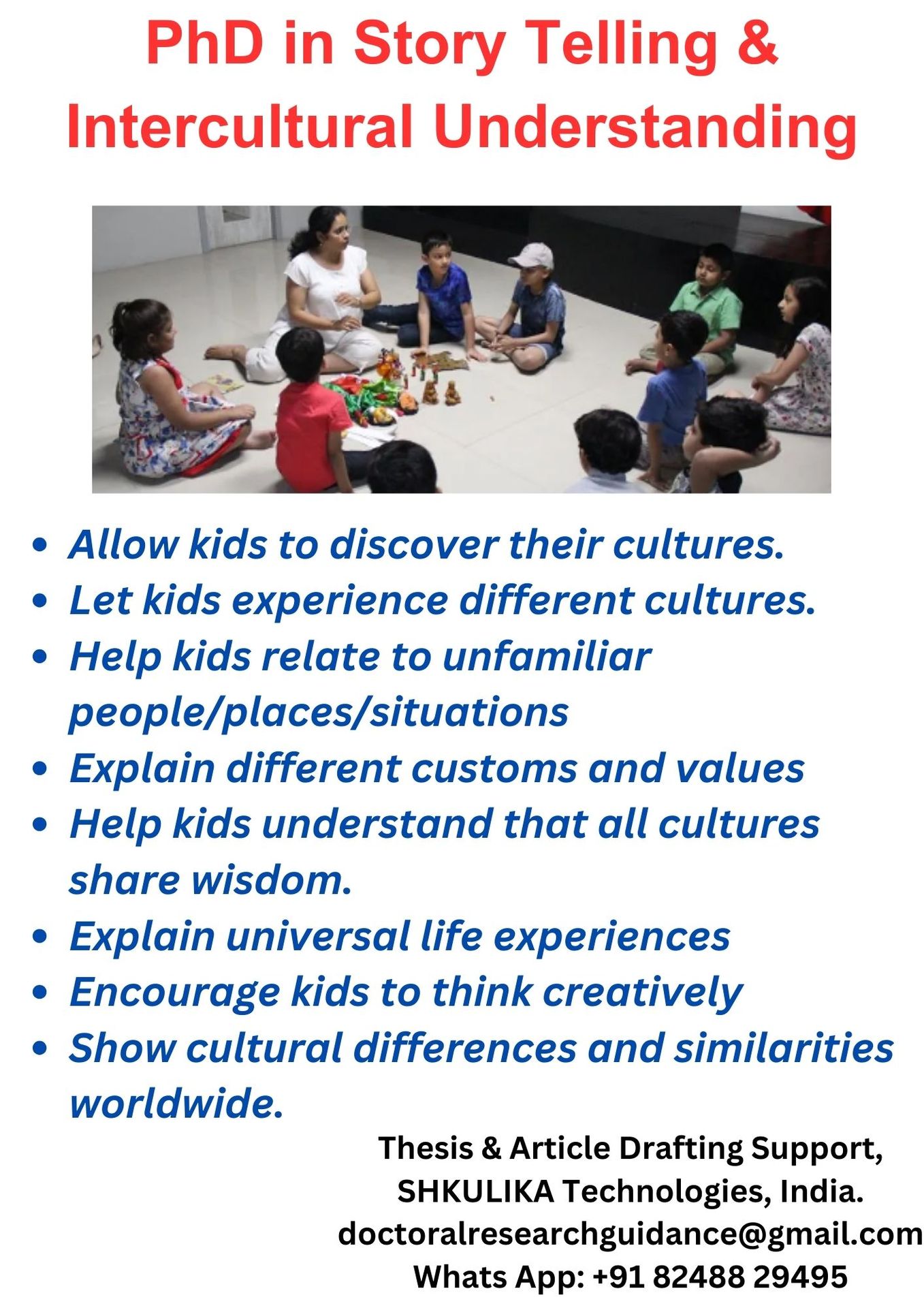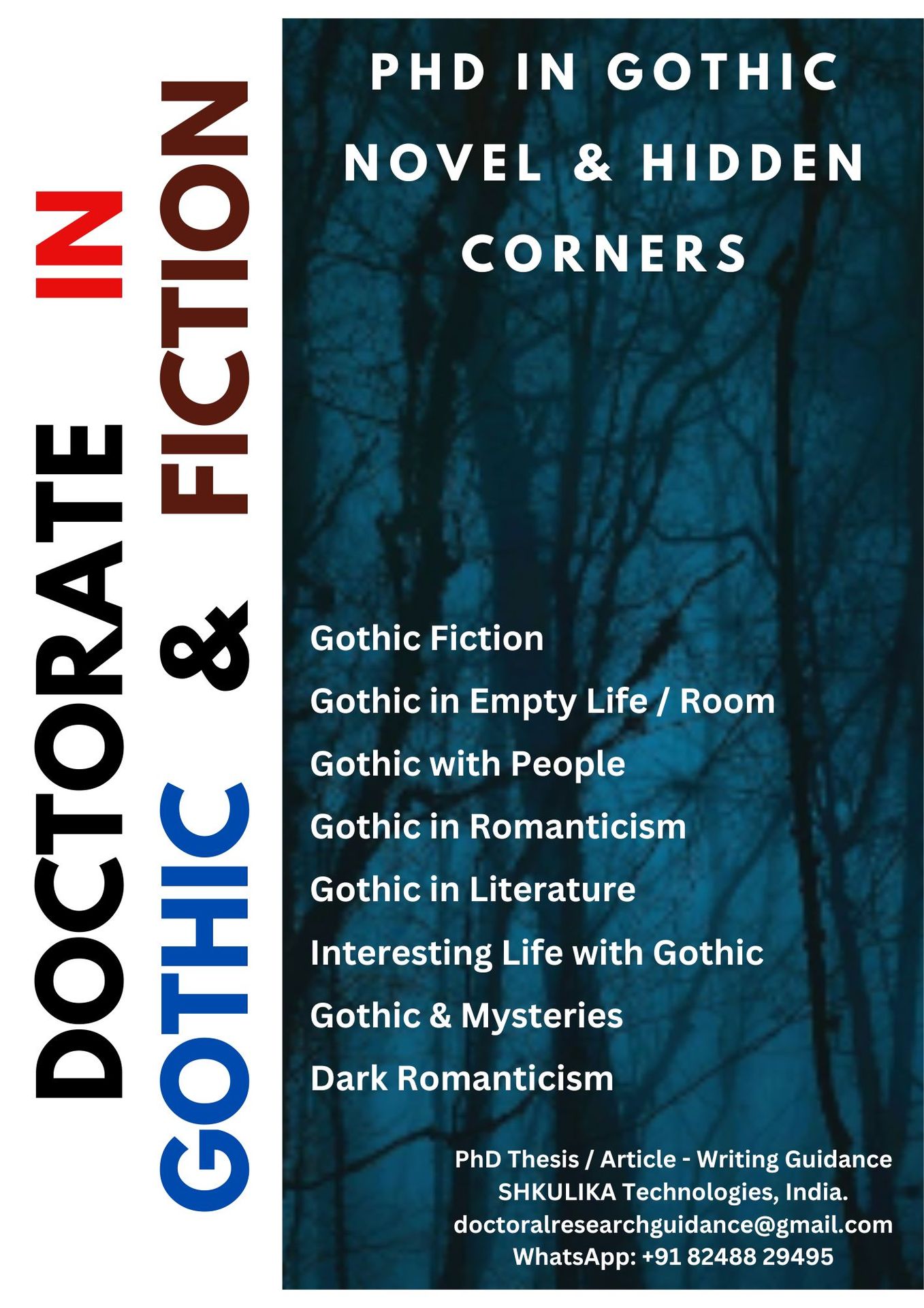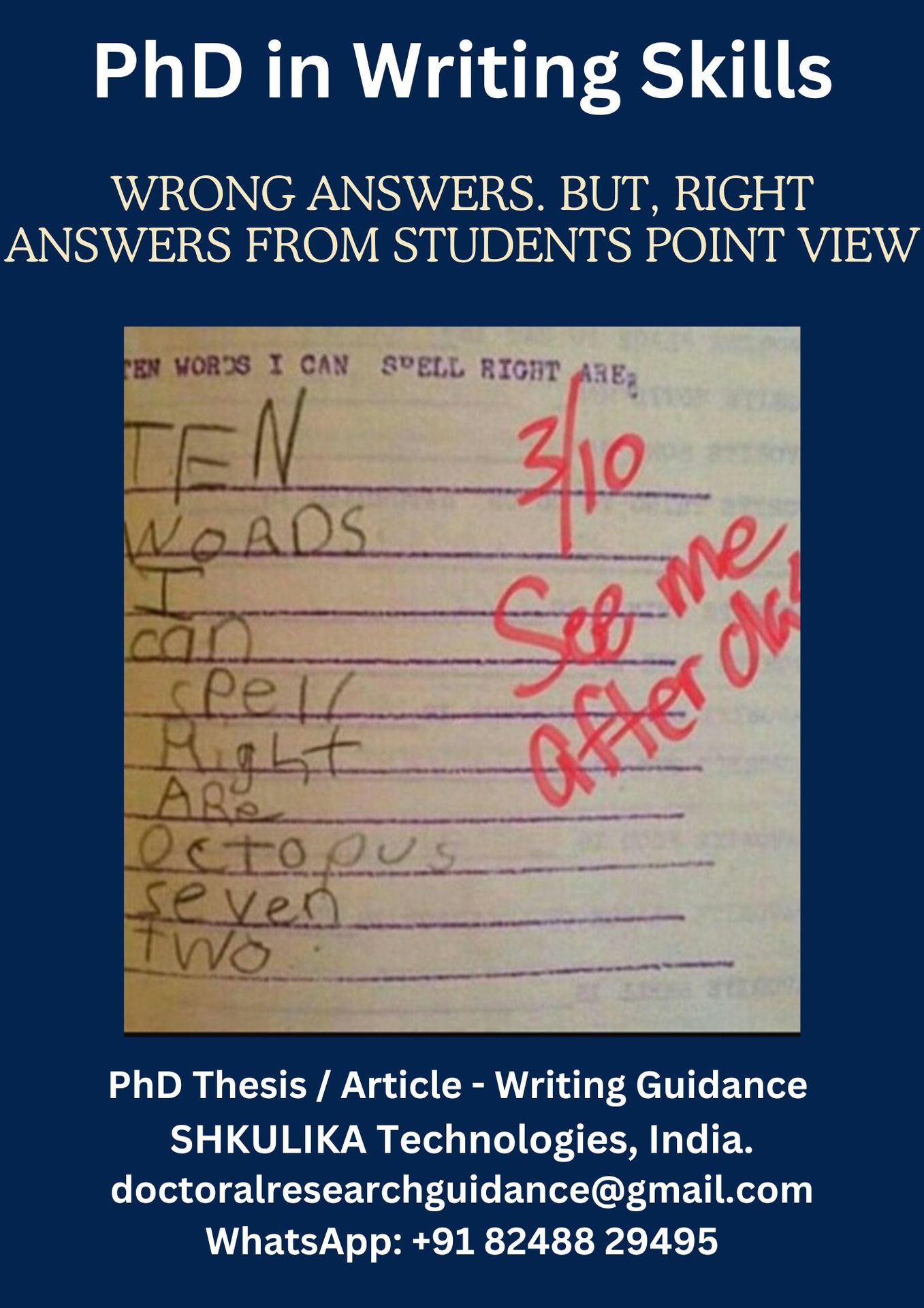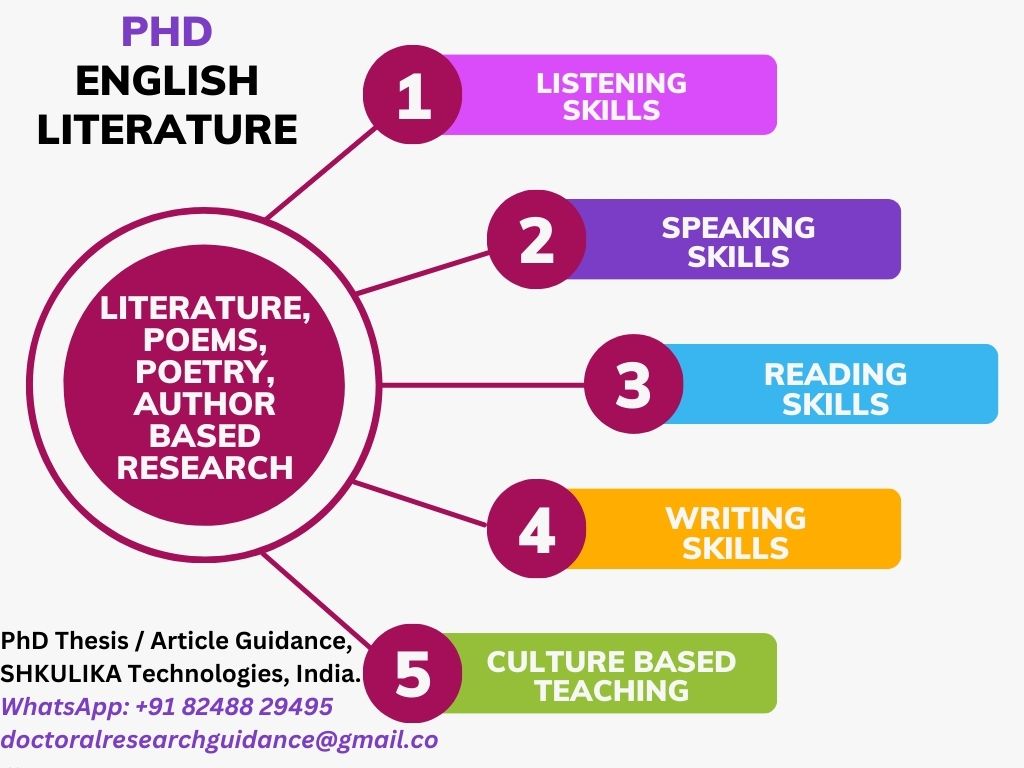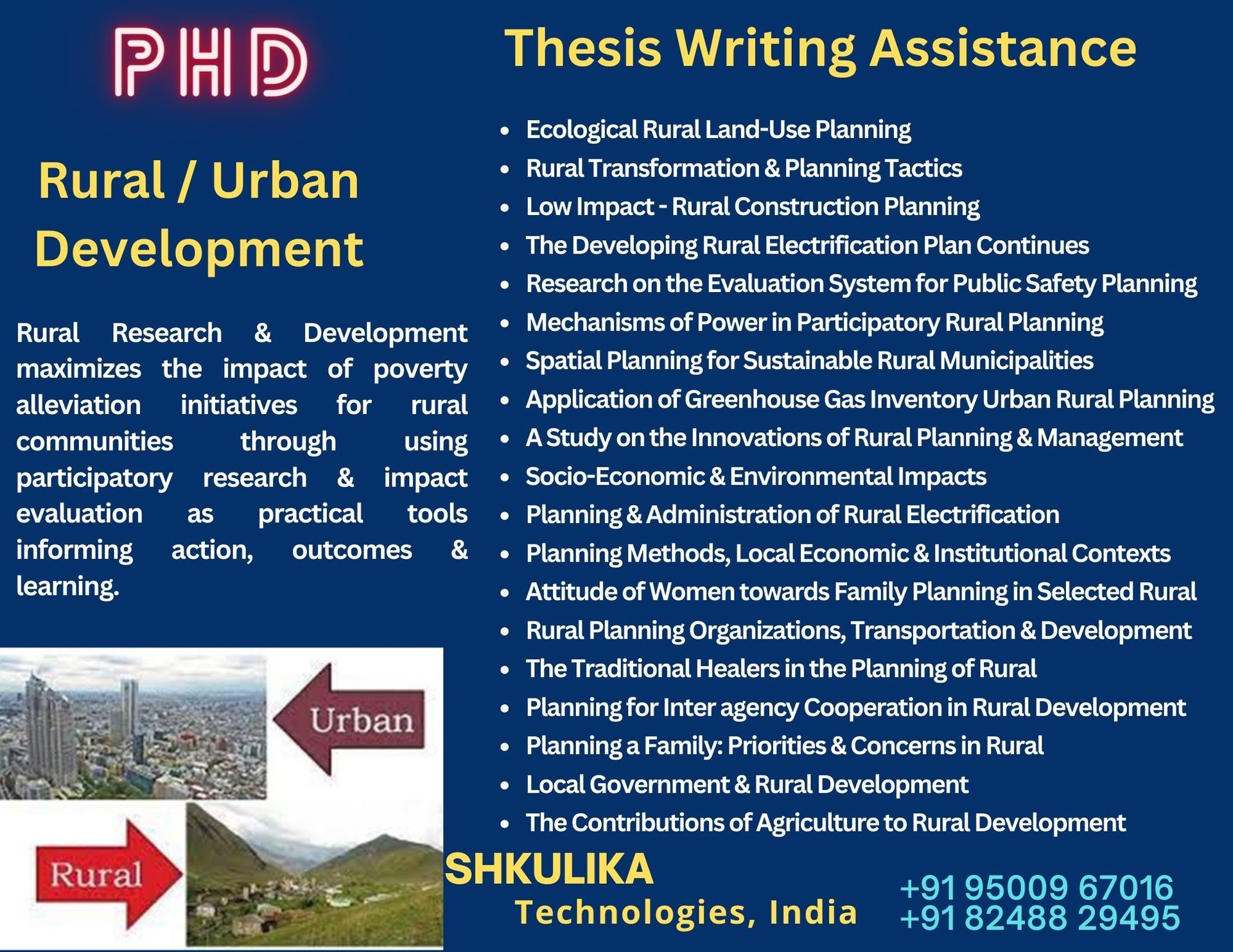MAIN ROLES
The purpose of this research guidance is to provide
an overview of the process for conducting a PhD research project. It is
designed to help you plan your project, identify the resources and tools
needed, and develop a timeline for completion. This guidance will also provide
information on how to effectively communicate your research findings. The
guidance will cover topics such as: developing a research question, writing a
proposal, designing an experiment or survey, collecting data, analyzing
results, writing up the results, and presenting your findings. Additionally, it
will discuss strategies for successful collaboration with other researchers and
stakeholders. Finally, it will provide advice on how to effectively disseminate
your results through publications and conferences.
Research Areas
Welcome to the world of PhD guidance! Pursuing a PhD is an exciting opportunity to explore your interests in a field of study, develop new skills, and make a unique contribution to knowledge. With the right guidance and support, you can successfully navigate the journey to earning your degree.
At this stage in your academic career, it is important to have access to resources that will help you identify research topics, develop research plans and strategies, and build relationships with faculty mentors. As part of our commitment to helping you achieve your goals, we offer personalized PhD guidance services tailored to your individual needs.
Our team of experienced professionals provides expertise in all aspects of the PhD process. Through one-on-one coaching sessions and workshops, we will help you define your research interests, develop an effective plan for completing your degree requirements, and identify potential sources of funding for your project. We also provide advice on how best to communicate with faculty members and other professionals in the field.
We understand that pursuing a PhD can be overwhelming at times. That’s why we are here to provide support every step of the way. We look forward to helping you reach your goals!
PhD Environmental Engineering Research Guidance
1. Develop a research plan: Outline the scope of your research project, identify potential topics of inquiry, and create a timeline for completing each stage of the project.
2. Identify relevant literature: Conduct a thorough review of existing literature on your topic and identify gaps in knowledge or areas for further exploration.
3. Collect data: Develop an appropriate data collection plan, including methods for collecting data from primary and secondary sources, as well as any ethical considerations related to gathering information from human participants.
4. Analyze data: Utilize appropriate statistical methods to analyze your data and draw meaningful conclusions from it.
5. Write up results: Prepare a comprehensive report summarizing the results of your research project, including recommendations for further action or areas for future study.
6. Present findings: Present your work to peers and experts in the field at conferences or other venues and solicit feedback on your research findings and conclusions.
PhD Geotechnical Engineering Research Guidance
The best place to start your research for a PhD in Geo technical Engineering is by talking with faculty members at universities that offer the degree. You should also look into online resources, such as professional organizations, journals, and conferences related to the field. Additionally, it may be helpful to contact potential supervisors who have expertise in the area you are interested in researching. Finally, you should explore funding opportunities that may be available to help support your research.
PhD Architecture Engineering Research Guidance
PhD research in architecture engineering can be conducted in a variety of areas, including building materials, structural design, energy efficiency, and computer-aided design. Depending on the specific area of research, guidance may be sought from faculty members at universities or from professionals working in the field. When conducting research, it is important to identify a clear research question and develop a plan for data collection and analysis. Additionally, researchers should be familiar with relevant literature and industry standards in order to ensure their work is up-to-date and accurate. Finally, it is important to develop good communication skills so that findings can be effectively communicated to other professionals in the field.
PhD Material Engineering Research Guidance
A PhD in Material Engineering will involve a great deal of research and experimentation, as well as the completion of a dissertation. In order to pursue this degree, students must have an undergraduate degree in engineering or a related field. During their studies, they will learn about the properties and characteristics of different materials and how to manipulate them to achieve desired results. They will also gain experience with advanced material design and manufacturing techniques. Additionally, they may be required to take courses in math, physics, chemistry, and other sciences that are related to material engineering. Upon completion of their studies, graduates will be able to design and develop materials for use in a variety of industries such as aerospace, automotive, medical device manufacturing, and power generation.
PhD Structural Engineering Research Guidance
If you are interested in pursuing a PhD in Structural Engineering, there are a few steps that you should take. First, you should research the different universities and programs available to find the one that fits your goals and interests best. Once you have chosen the program, contact faculty members from the department to discuss potential research topics and advisors. You should also talk to current students and alumni of the program to get their perspectives on the program and faculty. Additionally, look into any fellowships or grants that may be available to help fund your research. Finally, create a timeline for yourself so that you can manage your expectations and stay on track throughout your PhD journey.
PhD Earthquake Engineering Research Guidance
If you are interested in pursuing a PhD in earthquake and construction research, there are several steps you can take to ensure that your research is successful. First, it is important to find an advisor or mentor who has expertise in the field and can provide guidance. Additionally, it is beneficial to become familiar with the relevant literature so that you can identify potential research questions and areas of focus. It is also important to develop a strong understanding of seismic design principles and building codes so that you can effectively analyze existing structures and design new ones. Finally, it is essential to have access to the necessary resources such as software, data sets, and laboratory equipment.
PhD Transportation Engineering Research Guidance
Congratulations on pursuing a PhD in Transportation Engineering! Here are some guidance and tips to help you along your research journey:
1. Identify your research interests: Transportation Engineering is a vast field with many sub-disciplines. Identify your research interests and select a topic that is unique, interesting, and has real-world applications.
2. Conduct a comprehensive literature review: Before embarking on your research, conduct a thorough literature review of the latest research in your field. This will help you identify gaps in knowledge and areas where you can contribute to the field.
3. Familiarize yourself with research methodologies: A PhD research project requires sophisticated research methods. Familiarize yourself with research methodologies including statistical analysis, modeling, and simulation techniques.
4. Collaborate: Reach out to your professors, peers, and industry professionals in your field. Collaboration can bring diverse perspectives to your research, and provide you with networking opportunities.
5. Keep track of your progress: Keep a research journal to document your progress, ideas, and milestones. This will help you stay organized and you can refer to it as a reference if you get stuck somewhere during the research.
6. Attend conferences and workshops: Attend conferences and workshops in your field to gain knowledge and stay up-to-date on the latest research. These events also provide opportunities to present your findings and receive feedback from your peers.
PhD Urban Planning Engineering Research Guidance
Urban planning engineering is an interdisciplinary field that combines knowledge from urban planning, engineering, architecture, environmental science, and other related disciplines. The study of Urban planning engineering aims to design and develop sustainable urban areas, where people can live in harmony with nature, and with access to efficient transportation systems, clean water supply, and adequate public services.
The study of urban planning engineering covers a wide range of topics, including urban transportation planning, land-use planning, public space design, environmental planning, housing development, and urban economics. Students in this field will learn how to conceptualize, design, and implement urban planning projects that meet the needs of communities, businesses, and government agencies.
The curriculum for urban planning engineering typically includes courses in transportation planning, Geographic Information Systems (GIS), urban design, housing planning, environmental planning, and land-use planning. Additionally, students will learn how to use engineering software tools to analyze and model urban planning problems.
Upon graduation, urban planning engineers can work in both the public and private sectors, in a wide range of roles such as urban planners, transportation planners, environmental planners, and project managers. Urban planning engineers play a crucial role in designing and implementing sustainable urban development projects that make a positive impact on the quality of life of urban residents.
PhD Water Resources Engineering Research Guidance
Water resources is an interdisciplinary field that concerns the management, protection, and use of water resources, including surface water, groundwater, and rainwater. It encompasses various aspects such as water economics, water pollution control, water quality management, water supply and distribution, water storage and treatment, and water conservation.
Remember, a PhD is a journey. Enjoy the process, stay focused and remain dedicated to your research. Good luck!
Research Flow Categories (Based on Time Slap)
| Research Step |
Time Duration (Min and Max) |
|
PhD Topic Selection |
2 – 5 Days |
|
Research Proposal |
5 – 15 Days |
|
Literature Review |
5 – 15 Days |
|
Framing of Objectives |
2 – 5 Days |
|
Data Collection |
1 – 3 Months |
|
Article Drafting |
3 – 30 days |
|
Thesis Drafting |
7 – 90 Days |
|
Preparation of Questionnaire Hypotheses & Research questions |
3 – 15 Days |
|
SPSS Data Analysis |
10 – 30 Days |
|
Research Paper Writing Assistance |
3 – 30 Days |
|
SCOPUS / Q1 Level Quality |
1 Months |
|
Algorithm Development |
1 Month |
|
Research Findings |
5 – 15 Days |
|
Full Thesis Editing |
3 – 15 Days |
|
TURNITIN Plagiarism Check |
3 – 15 Days |
|
Editing to less than 10% Similarity index |
3 – 15 Days |
|
Pilot Study |
3 – 15 Days |

Best Assignment for Project Help & Writing in India...
PhD Thesis writing Assignment Writing Dissertation Writing overseas Consultancy
Master Educational Services - Service Provider of Abroad Dissertation writers & PhD Thesis

Trustworthy thesis writing services
Dissertation Writing Services, PhD Thesis Help, Research Proposal Writing
Top Thesis Writing Services in India
Best Thesis Printing Services
Best Dissertation Writing Services
Dissertation Writing

PhD Consultancy Services | Paper Writing | Thesis Writing | Paper Publish
RESEARCH CONSULTANCY (Dissertation and Assignment Writing Assistance)
PhD Dissertation Writing Services in India
Phd thesis writing services India! PhD Thesis Help in India

Thesis Writing Services by Top Academic Consultants
Research PhD Consultancy Service in India
DATA Analysis (Dissertation, Article, and Thesis Advising) - The University Writing Center
Thesis Consulting

Thesis Dissertation Research Paper Writing
Assignment & Dissertation Research Consultancy
Dissertation Writing Help

Master's Dissertation Writing Services - Thesis India
Research PhD Consultancy Service in India
PhD Thesis Consultancy - PhD Thesis Writing Services In India Service Provider
from India

Research Support and Dissertation Writing Assistance
Dissertation Writing Services | Dissertation Writing Consultancy



Writing Consultancy

The Writing Consultancy
Writing Consultancy – Academics
The Writing Consultancy | Manuscript Assessment
Management and Strategy PhD Thesis Writing Consultancy Services

Content writing, copy writing for business consulting services



